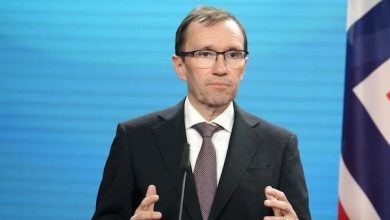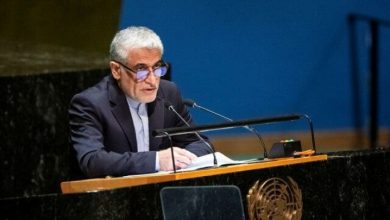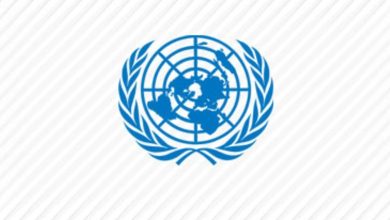Drafting a comprehensive law to combat terrorism is essential
The Association for Defending Victims of Terrorism - Tehran's representative in the Islamic Consultative Assembly said in an interview with Daneshjo News Agency: Perhaps the most valuable measure that the Islamic Consultative Assembly must take in the field of supporting victims of terrorist groups is a comprehensive law to combat terrorism.

Daneshjo News Agency discussed the importance and role of the Assembly in supporting victims of terrorism in an interview with Zohreh Sadat Lajevardi, a representative in the Islamic Consultative Assembly, on the issue of the importance and role of the Assembly in supporting victims of terrorism.
The text of this interview is as follows:
In your opinion, what role does the Islamic Consultative Assembly play in strengthening legal and social support for victims of terrorism?
Lajevardi: The fact is that in this particular issue, legal support is very necessary and will be the cornerstone of social and even cultural support. In this regard, we have the Law on the Accession of the Government of the Islamic Republic to the Convention of the Organization of the Islamic Conference to Combat International Terrorism, approved in 2008; but since our beloved country Iran is considered one of the largest victims of terrorism in the world and these brutal acts began from the very beginning of the establishment of the Islamic Republic. Among these terrorist acts, we can mention the bombing of the Islamic Republic Party and the martyrdom of Shahid Beheshti and 72 officials, the martyrdom of President Rajai and Prime Minister Bahonar in 1981, and more than twelve thousand martyrs of the assassination by the terrorist group of the People’s Mojahedin Organization (MKO), which was often initiated with the green light of the United States in Iran.
Perhaps the most important valuable action of the Islamic Consultative Assembly that must be formulated in this regard is the comprehensive law on combating terrorism, which defines the types of terrorism, terrorism, and its examples. On the other hand, preventive measures, deterrent and penal measures, and specific judicial procedures for trying terrorists, designing specific processes for pursuing terrorist crimes, and attracting international support and support for victims of terrorism, all of which should be seen in it so that it can prevent the proliferation of terrorism and terror to the desired extent.
In the international arena, how can the Assembly defend the rights of victims of terrorism in our country and attract global attention to this issue?
Lajevardi: In the part of the law that is expected to be drafted specifically to combat terrorism and its spread in the parliament, the important issues that I have mentioned should definitely be taken into account. Issues such as making maximum use of international capacities, requiring international follow-up of terror attacks, identifying the ways of financing terrorism and blocking and imposing heavy crimes on them, in other words, narrowing the field for groups supporting terrorism inside and outside the country, requiring the diplomatic apparatus and bringing the power of the country’s media to the fore to explain the crimes that have occurred and the terror attacks that have taken place in Iran, and attracting international cultural, social, and legal support and cooperation in the path of seeking grievances from relevant international institutions.
Considering the role of foreign policy in combating terrorism, what steps can be taken to increase pressure on countries supporting terrorism at the diplomatic level? Are the current measures sufficient?
Lajevardi: A noteworthy point in this regard is the dual approach of the United States and some Western countries towards independent countries, which has caused insecurity, incitement of war, and the bloodshed of tens of thousands of innocent people, especially Muslims in the world and the Middle East. Unfortunately, due to various reasons, including the weakness of diplomacy in the oppressed countries, the lack of sufficient unity between them, the lack of sufficient influence of these countries in international institutions, and the like, the diplomatic apparatus has not yet been able to fulfill the role and position expected of it. The diplomatic apparatus should use the capacity of international conventions and documents to support victims of terrorist acts, and by identifying and introducing the functioning of some organized mechanisms of international institutions such as human rights and introducing them into the current political literature of the world, make serious demands on human rights institutions, and by creating synergy between Iran and other Muslim countries or countries affected by terrorism, develop a regional or beyond strategic plan to prevent, confront, challenge, and hold international institutions accountable for the crimes of the United States, Israel, and other countries that support terrorism; and be able to attract and absorb public capacities around the world and utilize the capacity of public institutions, including legal and media institutions, etc., to introduce the reality to the people of the world and pursue legal and criminal prosecutions of the terror attacks that have taken place.





